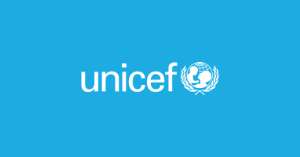
From Desmond Davies, London Bureau Chief
London, Aug. 2, GNA - Almost 250,000 Nigerians - 50,000 of whom are children - living in Borno State will suffer from acute malnutrition this year and one in five will die if they do not receive assistance, aid agencies have warned.
The situation has arisen as a result of the activities of Boko Haram insurgents in Northern
Nigeria where over 500,000 people have been rendered homeless by the seven-year conflict, which the government of President Muhammadu Buhari has been struggling to contain.
The UN Children's Fund (UNICEF) said on Monday that it was scaling up its humanitarian activities despite an attack on one of its convoy last week that injured two UN workers.
'We cannot let this heartless attack divert any of us from reaching the more than two million people who are in dire need of immediate humanitarian assistance,' said UNICEF Nigeria
Representative, Jean Gough, in a press release issued by the agency.
'The violence has disrupted farming and markets, destroyed food stocks, and damaged or destroyed health and water facilities.
'We absolutely have to reach more of these communities,' she stressed.
At the beginning of the year, the agency had appealed for $55 million for its emergency work, of which $23 million has so far been received.
Doctors Without Borders/Médecins Sans Frontières (MSF) has also called for urgent food, medical care, water and shelter for those affected by the conflict in Borno State.
"Aid agencies must deploy a massive relief operation to respond to this humanitarian emergency," said Dr. Isabelle Defourny, MSF director of operations.
"Everything suggests that the situation of people in other towns is just as critical and that they also need food and medical care.'
MSF said that every day, displaced people were arriving in the state capital, Maiduguri, reporting great difficulty in accessing food in the communities they are fleeing.
But critics of the government have claimed that President Buhari is not doing enough to deal with the threat posed by Boko Haram as he rashly pursues his anti-corruption campaign, which many say is aimed at his political opponents.
Others have said that foreign funding to back the government's fight against Boko Haram has been diverted towards controversial political issues.
A senior Western official told The Daily Telegraph in London 'One of the reasons we have this humanitarian crisis in northern Nigeria is that Mr Buhari is diverting vital resources away from the campaign to pursue his own political agenda.
'The Nigerian government, which is receiving significant amounts of foreign aid, needs to understand that its main priority is to deal with Boko Haram, and also to make sure Nigeria does not suffer the worst humanitarian disaster in its history
GNA




 We’ll protect state wealth from opaque deals – Prof Jane Naana
We’ll protect state wealth from opaque deals – Prof Jane Naana
 Mauritania president says running for second term in June polls
Mauritania president says running for second term in June polls
 I won't ever say I was a mere driver’s mate' — Prof. Opoku-Agyemang
I won't ever say I was a mere driver’s mate' — Prof. Opoku-Agyemang
 2024 polls: 'EC struggling to defend credibility'— Prof. Opoku-Agyemang
2024 polls: 'EC struggling to defend credibility'— Prof. Opoku-Agyemang
 Akufo-Addo gov't's 'greed, unbridled arrogance, unrestrained impunity, sheer dis...
Akufo-Addo gov't's 'greed, unbridled arrogance, unrestrained impunity, sheer dis...
 Election 2024: Ghana needs an urgent reset, a leadership that is inspiring – Ma...
Election 2024: Ghana needs an urgent reset, a leadership that is inspiring – Ma...
 Partner NDC to rollout a future of limitless prospects – Prof Jane Naana Opoku-A...
Partner NDC to rollout a future of limitless prospects – Prof Jane Naana Opoku-A...
 NPP will remain in gov’t till Jesus comes — Diana Asamoah
NPP will remain in gov’t till Jesus comes — Diana Asamoah
 Sunyani Technical University demands apology from former SRC president over sex-...
Sunyani Technical University demands apology from former SRC president over sex-...
 'Dumsor' was resolved by Mahama but ‘incompetent' Akufo-Addo has destroyed the g...
'Dumsor' was resolved by Mahama but ‘incompetent' Akufo-Addo has destroyed the g...
